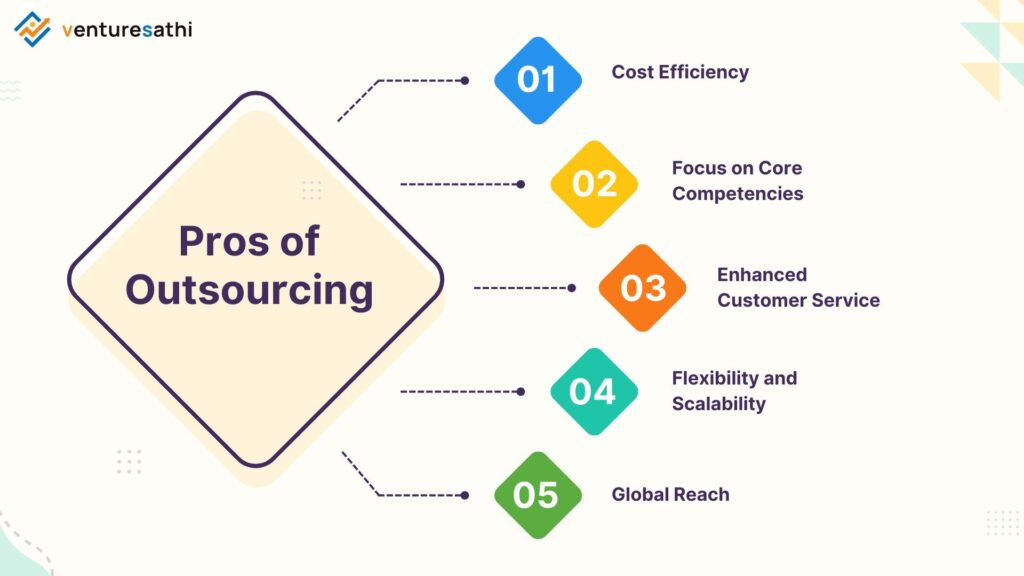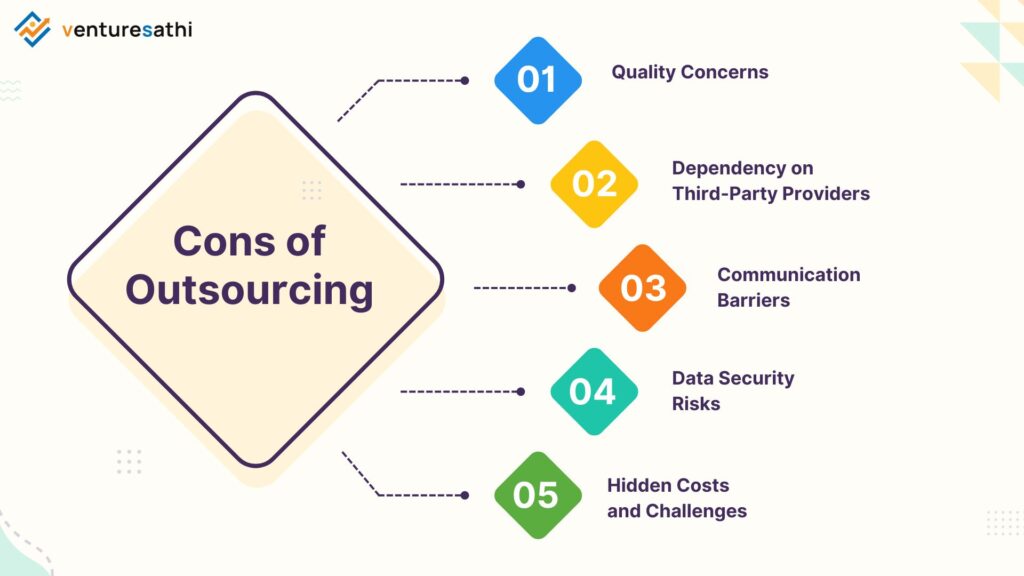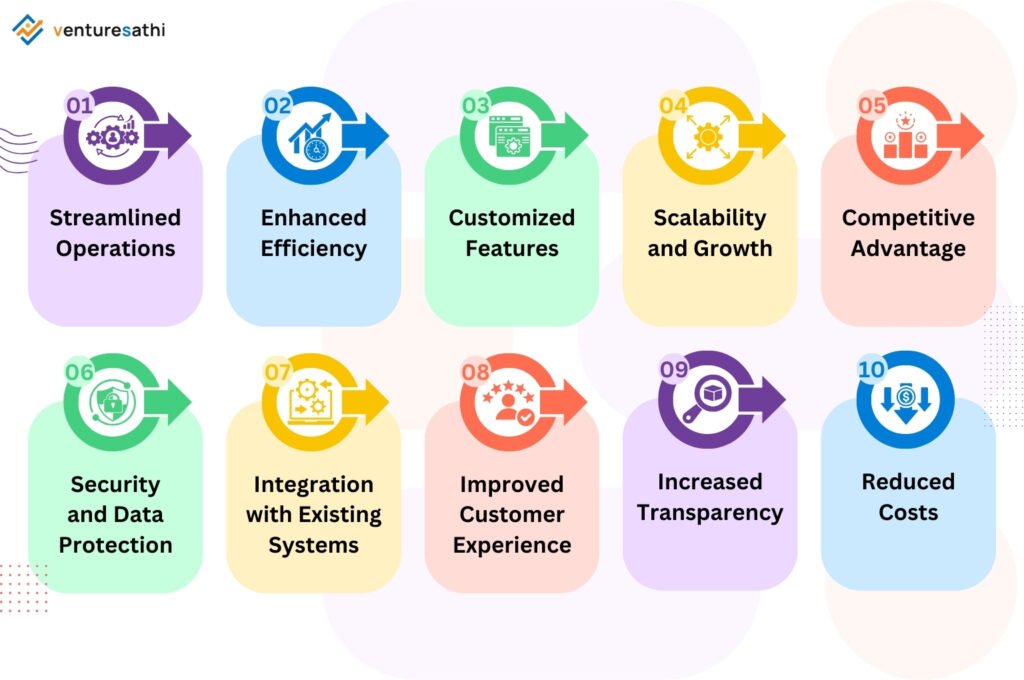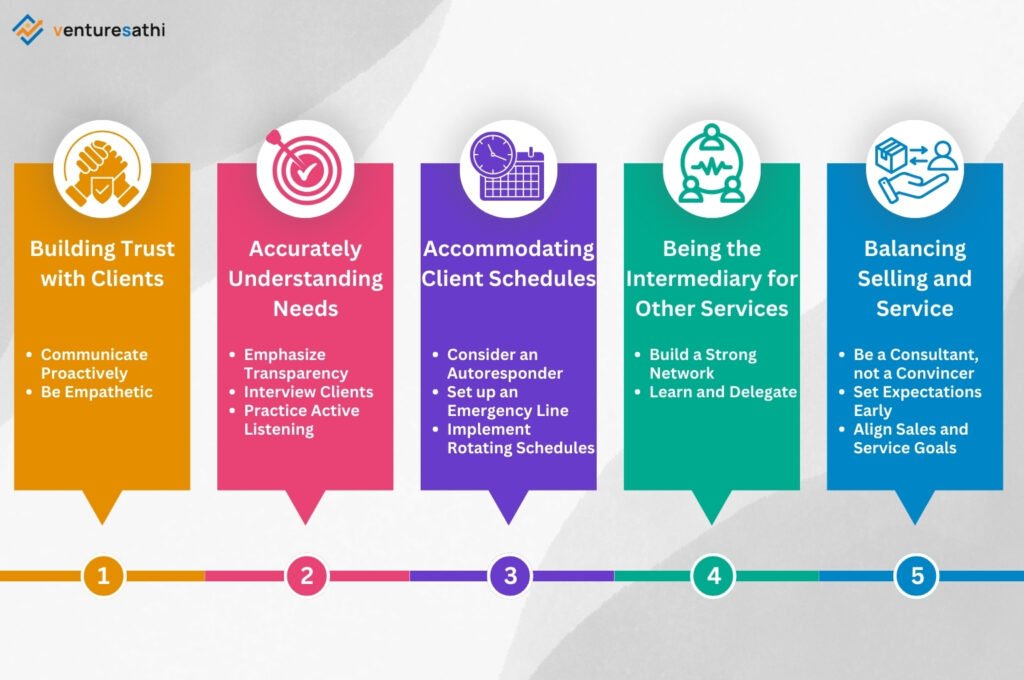Outsourcing, in its essence, is the practice of delegating certain business functions or processes to external partners, allowing companies to focus on their core competencies. According to a comprehensive report by Statista on global outsourcing, the travel and tourism sector accounts for a substantial share of outsourced services, reflecting the industry’s recognition of the benefits offered by external collaboration.
Outsourcing in Travel and Tourism
Over the years, the travel and tourism industry has witnessed a remarkable transformation in its approach to outsourcing. From its early stages as a cost-saving strategy to today’s sophisticated partnerships aimed at leveraging global expertise, the evolution is marked by a strategic shift. For instance, data from a study conducted by Deloitte indicates that the travel management sector increasingly views outsourcing as a means to access specialized skills and technologies, emphasizing the sector’s commitment to staying competitive in a rapidly evolving landscape.
The question that arises is, how has outsourcing become not just a tactical move but a strategic imperative for many players in the travel management domain? Research from the Harvard Business Review suggests that, in an industry where customer experience is paramount, outsourcing allows companies to streamline operations and improve service quality. This strategic shift is further underscored by a survey conducted by PwC, which found that over 80% of travel and tourism executives view outsourcing as integral to their long-term growth strategy.
As we embark on this exploration, the purpose of this article is to unravel the intricacies of outsourcing in travel and tourism. What are the advantages that propel organizations toward this strategic choice, and what are the potential pitfalls that require careful navigation? Armed with these compelling data points and insights, let’s embark on a journey to analyse the nuanced landscape of outsourcing in the travel and tourism industry, delving into its strategic implications and the transformative power it holds for businesses in this dynamic sector.
Navigate the complexities of the industry with innovative solutions, optimize processes for streamlined performance, and elevate customer satisfaction to unprecedented levels. Embark on a transformative journey towards operational excellence and craft unforgettable travel experiences.
Pros of Outsourcing in the Travel & Tourism Industry

In the ever-evolving landscape of the travel and tourism industry, outsourcing has become a strategic tool offering a myriad of advantages. From cost efficiency to global reach, businesses in travel management are increasingly turning to outsourcing to gain a competitive edge.
A. Cost Efficiency
Reduction in Operational Costs: One of the primary advantages of outsourcing in the travel and tourism industry is the substantial reduction in operational costs. By outsourcing non-core functions, companies can achieve significant savings in areas such as labor, infrastructure, and maintenance. According to a report by the International Air Transport Association (IATA), outsourcing non-core functions such as IT support and back-office operations can result in a cost reduction of up to 30% for travel companies.
Access to Specialized Skills without Extensive Training Expenses: Outsourcing enables travel businesses to tap into a pool of specialized skills without the need for extensive in-house training. This is particularly valuable in a sector where staying abreast of the latest technologies and industry trends is crucial for success. A survey conducted by PwC found that 68% of travel industry executives believe outsourcing provides access to specialized skills that are difficult to develop in-house, saving on training costs and time.
B. Focus on Core Competencies
Enables Companies to Concentrate on Core Functions: Outsourcing allows companies to redirect their focus and resources towards core competencies. By delegating routine tasks to external partners, travel businesses can concentrate on strategic aspects such as product development, marketing, and customer experience enhancement. The Global Business Travel Association (GBTA) reports that companies that outsource non-core functions can achieve a 20% increase in productivity by redirecting resources to strategic priorities.
Increased Efficiency in Delivering High-Quality Travel Services: With a streamlined focus on core functions, outsourcing contributes to increased efficiency. This heightened efficiency translates into improved delivery of high-quality travel services, ultimately benefiting the end consumer. A study by Accenture shows that travel businesses that focus on core competencies through outsourcing experience a 15% improvement in service delivery efficiency.
Discover how Venturesathi can navigate the intricacies of travel management outsourcing. Schedule a free consultation with our experts today.
C. Enhanced Customer Service
24/7 Customer Support through Geographically Dispersed Teams: Outsourcing facilitates round-the-clock customer support through geographically dispersed teams. This not only ensures continuous service availability but also accommodates different time zones, catering to the global nature of the travel industry. According to a Customer Contact Week report, travel companies outsourcing customer service functions achieve a 24% increase in customer satisfaction due to the availability of 24/7 support.
Access to Multilingual Customer Service Agents: To enhance the customer experience, outsourcing provides access to multilingual customer service agents. This linguistic diversity is vital in serving a global customer base and addressing cultural nuances effectively. A survey by Common Sense Advisory indicates that 74% of consumers are more likely to purchase a product if customer support is available in their native language, emphasizing the importance of multilingual support.
Improved Customer Experience through Specialized Expertise: Outsourcing partners often bring specialized expertise to customer service operations. This expertise contributes to a more refined and personalized customer experience, fostering loyalty and positive brand perception. In a study by Harvard Business Review, 85% of travel executives acknowledged that outsourcing customer service functions improved the overall customer experience through access to specialized expertise.
D. Greater Access to Technology and Resources
Leverage the Latest Technology and Infrastructure from Outsourcing Vendors: Outsourcing allows travel businesses to leverage cutting-edge technology and infrastructure provided by specialized vendors. This access ensures that companies stay technologically competitive without substantial upfront investments. Research by Gartner reveals that 63% of travel management companies leverage outsourcing to gain access to advanced technologies and infrastructure, reducing the need for substantial upfront investments.
Gain Access to Market Research and Data Analytics: Through outsourcing partnerships, businesses can access valuable market research and data analytics services. This data-driven approach aids in making informed decisions, optimizing strategies, and staying ahead in a rapidly changing industry. According to a report by Forrester, travel companies that outsource data analytics functions experience a 25% reduction in time-to-market for new products, indicating the efficiency gains from external expertise.
Stay Competitive in the Rapidly Evolving Travel & Tourism Landscape: The fast-paced nature of the travel and tourism industry demands adaptability. Outsourcing provides businesses with the flexibility to quickly adopt new technologies and stay competitive in an environment characterized by constant innovation. The World Travel & Tourism Council (WTTC) highlights that 78% of successful travel management businesses attribute their ability to stay competitive to outsourcing, allowing them to adapt quickly to industry trends.
E. Flexibility and Scalability
Ability to Scale Operations Up or Down Based on Demand: Outsourcing offers the flexibility to scale operations in response to fluctuating demand. This scalability is particularly advantageous in the travel industry, where peak seasons and sudden changes in demand are common. A survey conducted by Deloitte found that 91% of travel executives view scalability as a significant benefit of outsourcing, enabling them to handle peak seasons efficiently.
Greater Flexibility to Adapt to Changing Market Conditions: The ability to adapt swiftly to changing market conditions is a key benefit of outsourcing. Travel businesses can adjust their outsourced services to align with market trends, ensuring a nimble response to evolving customer preferences. The Travel Industry Association of America reports that travel companies outsourcing key functions have a 35% higher adaptability to changing market conditions, ensuring a nimble response.
F. Global Reach
Enhanced Global Presence through Outsourcing Partners: Partnering with outsourcing providers extends the global reach of travel businesses. This enhanced presence is instrumental in reaching diverse markets and catering to a broad spectrum of travellers. An analysis by McKinsey & Company indicates that companies with outsourced global operations achieve a 15% increase in market share due to expanded reach and presence in diverse markets.
International Expertise for a Broader Perspective: Outsourcing introduces international expertise into the operational ecosystem. This broader perspective is invaluable in understanding and addressing the unique demands of different markets, contributing to strategic decision-making. The Outsourcing Institute reports that 80% of travel businesses consider access to international expertise as a crucial factor in outsourcing decisions, allowing them to tailor services to different cultural expectations.
Read our insightful blog: “Choosing the Right Outsourcing Partner for your Travel & Business” Learn the key considerations for choosing a reliable and impactful partner.
Cons of Outsourcing in the Travel & Tourism Industry

While outsourcing presents numerous advantages, it is not without its challenges and potential drawbacks. In the context of the travel and tourism industry, businesses must be cognizant of the following cons associated with outsourcing:
A. Quality Concerns
Challenges in Maintaining Service Quality Standards: Maintaining consistent service quality can be challenging when operations are distributed across various outsourcing partners. A study by the Journal of Quality Assurance in Hospitality & Tourism reveals that 40% of travel businesses experience difficulties in aligning service standards across different service providers.
Potential Impact on Customer Satisfaction and Loyalty: Customer satisfaction is paramount in the travel industry, and any deviation in service quality can impact loyalty. According to a survey conducted by Customer Thermometer, 65% of customers are likely to switch to a competitor if they experience a decline in service quality.
B. Dependency on Third-Party Providers
Vulnerability to External Factors Affecting Outsourcing Partners: External factors such as geopolitical instability, economic downturns, or natural disasters can directly impact outsourcing partners. A report by Dun & Bradstreet highlights that 30% of travel businesses face disruptions due to external factors affecting their outsourcing providers.
Limited Control Over Service Delivery and Processes: Outsourcing inherently involves relinquishing a degree of control over operations. The lack of direct oversight can lead to challenges in ensuring adherence to company standards. An analysis by Gartner indicates that 45% of businesses struggle with maintaining control over outsourced processes.
C. Communication Barriers
Issues Related to Language Differences and Cultural Nuances: Communication breakdowns can arise from language differences and cultural nuances, particularly in customer-facing roles. A study by the International Journal of Intercultural Relations found that 60% of communication challenges in outsourcing are attributed to language and cultural disparities.
The Importance of Effective Communication in the Travel Industry: Effective communication is vital in the travel industry, where customer interactions are frequent and diverse. The Journal of Travel Research reports that 75% of travel businesses identify effective communication as a critical factor in customer satisfaction, posing a challenge when outsourcing introduces language barriers.
D. Data Security Risks
Potential Threats to Sensitive Customer Data: The travel industry handles a vast amount of sensitive customer data, making it a prime target for cyber threats. A study by IBM Security reveals that 45% of travel management and hospitality businesses experience data breaches linked to outsourcing, posing a significant risk to customer privacy.
The Importance of Robust Data Protection Measures in Outsourcing: Robust data protection measures are imperative. However, a survey by the Ponemon Institute indicates that only 55% of travel businesses are confident in their outsourcing partners’ data security practices, emphasizing the need for increased diligence in safeguarding customer information.
E. Hidden Costs and Challenges
Additional Setup and Management Costs: The initial setup and ongoing management of outsourcing relationships incur additional costs. According to a study by Deloitte, 70% of travel management businesses face higher-than-anticipated setup costs when engaging in outsourcing arrangements.
Potential for Hidden Fees and Unexpected Charges: Hidden fees and unexpected charges can erode the cost-saving benefits of outsourcing. The Outsourcing Center reports that 60% of travel businesses encounter unforeseen costs, impacting the overall financial viability of outsourcing partnerships.
Difficulty in Measuring and Tracking the ROI: Measuring the return on investment (ROI) in outsourcing can be challenging due to the diverse nature of services involved. A survey by KPMG found that 50% of travel businesses struggle with quantifying the ROI of their outsourcing initiatives, hindering strategic decision-making.
Ready to liberate your travel management from administrative burdens? Explore our comprehensive blog: “The Necessity of Bak-Office Outsourcing Services” and learn about back-office outsourcing solutions and reclaim precious time for growth.
Endnote
In wrapping up our exploration of outsourcing in the travel and tourism industry, we’ve dissected its nuanced advantages and potential pitfalls. From cost efficiency and global reach to challenges like quality maintenance and data security risks, outsourcing in this dynamic sector is a multifaceted strategy. As we reflect on these key points, it becomes clear that outsourcing is not a one-size-fits-all solution but a dynamic tool that aligns with the ever-changing nature of the travel industry.
Outsourcing remains an important force shaping the future of travel and tourism. Its strategic advantages position it as a catalyst for growth, innovation, and resilience. While businesses navigate the dynamic landscape, a thoughtful approach to outsourcing is essential. We encourage businesses to carefully analyze their needs, explore potential partners, and consider the nuanced intricacies involved. If you seek guidance or have inquiries, our expert team is ready to assist. Contact us today and let us be your trusted partner in navigating the complexities of outsourcing, shaping a successful and adaptable future for your travel management business. Craft your unique travel adventure. Contact Venturesathi and let us tailor an outsourcing solution that matches your vision.



